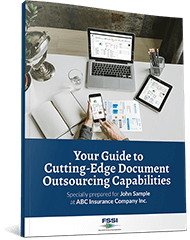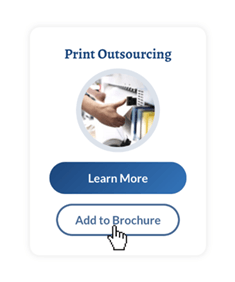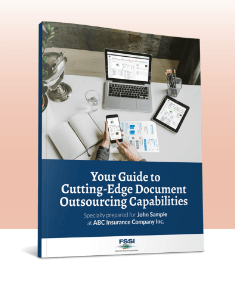The Benefits of Choosing Environmentally Friendly Products Like Paper

Will Replacing Print and Mail with Electronic Media Save the Environment?
What could be more environmentally friendly than just sending electrons over wires where they magically form into documents on your desktop, laptop, or cell phone? The answer is in what it takes to get those little electrons to line up and do what they’re supposed to do. It does cost money, it does take equipment, and it also has an impact on the environment.
The Myth: Electronic communication is more environmentally friendly than print and paper.
The Fact: Electronic communication is not necessarily more environmentally friendly because it also has environmental impacts.
Print versus digital is not a black-and-white issue. It’s is not as simple where one can say “digital communication is green” and “print communication is not.” There are more gray areas involved. “Go Paperless”, “Go Green”, and “Save Trees” are common themes these days as many corporations and governments encourage their customers and employees to switch to electronic transactions and communications. Our research shows that more than 8 in 10 U.S. consumers believe that cost savings are the driving force behind the ‘go paperless’ marketing hype. As a result, many are suspicious of marketing claims that going paperless will save trees or protect the environment.
The Truth Behind “Go Paperless”
- It is estimated that small network equipment in America’s homes consumed more than $1 billion worth of electricity in 2012, equivalent to the output of three large (500 MW) coal-fired power plants. This resulted in 5 million metric tons of carbon dioxide emissions or the annual tailpipe emissions of 1.1 million vehicles.
- Data centers are one of the largest and fastest-growing consumers of electricity in the United States. In 2013, U.S. data centers consumed an estimated 91 billion kilowatt-hours of electricity. In other words, enough electricity to power all the households in New York City twice over. Additionally, they are on track to reach 140 billion kilowatt-hours by 2020.
– Natural Resources Defense Council, 2014
- Nearly half the leading Fortune 500 companies make unsubstantiated claims about the environmental benefits of electronic billing. This is according to Two Sides. In response, Two Sides initiated a campaign to educate senior executives on the sustainability of print and paper. In addition, the goal was to encourage them to abandon misleading environmental claims. To date, over 30 companies have removed their environmental claims and several more are working with Two Sides to develop language that does not contain misleading or factually incorrect environmental claims about the use of online transactions and communications.
– Two Sides, 2015
What to Expect Next in the Environmental Paper Series (6 of 8)
You are reading part 5 of 8 of the Myths Vs. Facts About Paper, Printing, and the Environment series. To view the full series, please read Myth vs. Fact Part One: The Paper and Packaging Industry is Destroying Forests.
Is printing on paper the definition of waste? Find out in the next installment of the Environmental Paper Series. Check back at fssi-ca.com to follow this series or explore more blog posts.
FSSI
FSSI is a national, WBE-Certified document outsourcing company. The company was among the first print-mail outsourcing companies to integrate sustainability practices into regular business operations. FSSI has recycled or responsibly disposed of tons of reusable waste. Examples of materials we recycle include paper, wooden pallets, electronics such as computer monitors, and other office equipment. For its work in reducing energy consumption, the company earned Trane North America’s “Energy Efficiency Leader Award.” FSSI also participates in the Carbon Disclosure Project (CDP), keepers of the world’s largest corporate emissions and climate change database, and recognized leader in greenhouse gas reporting. Visit the sustainability practices page on FSSI’s website to learn more about its ongoing commitment to environmental stewardship.

Sources
Two Sides U.S., Inc. (2013). Print and Paper Myths and Facts [Brochure]. Author. Retrieved from http://www.twosidesna.org/



